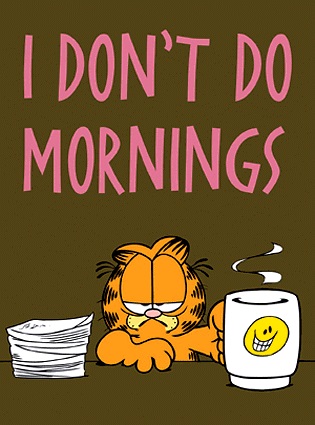“Excitement is the more practical synonym for happiness, and it is precisely what you should strive to chase. It is the cure-all.”
– Tim Ferriss, The 4-Hour Workweek

I was eighteen when I first read The 4-Hour Workweek. It blew my mind. I remember thinking about how awesome Tim Ferriss was, and how he got to spend all day jetting around the globe while his bank account piled up. He had all the privileges of a hard worker, without actually having to work hard. I wanted to be just like him.
After a few months of Ferriss super fandom, I decided the book was stupid and renounced it. For a short while I was a militant aferrissist (definition: a person who disbelieves or lacks belief in Tim Ferriss), denouncing him at every opportunity I could.
Since then I have become pretty neutral with my opinion of Ferriss’ books or blog. While I think his advice should be taken with a grain of salt. However, I also think he has some good stuff to teach. If you can get past all the brags, there’s value to be found.
To test my hypothesis, I decided to spend Saturday afternoon skimming my old copy of The 4-Hour Workweek. Here’s what I found:
- I actually use Pareto Principle.
For the unfamiliar, Pareto Principle is a concept where 20% of the input yields 80% of the output. If you sell ten flavors of ice cream, only two will really be popular. In The 4-Hour Workweek Ferriss advocates cutting down to that crucial 20%. Following his advice, your ice cream shop would only end up serving the two popular flavors.
While Pareto Principle works, it only works once you’ve reached a certain size. For example: I used to offer a slew of Fiverr gigs. It took up too much time, and a lot of them rarely saw any use. To streamline things, I deleted all the gigs that didn’t make me money. Sacrificing the rare client who wanted my underused services allowed me to build up my already successful review business.
Had I started out with the goal of only running 20% of the gigs I had made, I’d actually have never launched my review writing business. Instead I’d have been stuck with a less than lucrative content writing service, and an unused job where I would hyperlink and embed content on websites.
- I sometimes outsource.
Within The 4-Hour Workweek there’s a massive section on the benefits of outsourcing work. The way this idea is presented makes it sound exciting and new. When I first read about it, I thought it was the most novel concept ever. A year or two later I realized that the mystical concept of outsourcing wasn’t even remotely new. Everyone who has a job is basically just doing tasks that their boss has outsourced to them.
Personally, I’ll occasionally outsource when I need something done that’s too complex for me. I can’t draw. When I need an eBook cover, I “outsource” the task to someone else. It’s not nearly as impressive as it sounds.
- I have a location independent job.
Having a location independent job was the selling point for The 4-Hour Workweek. Location independence was talked up as being the greatest thing ever. You could spend the day racing speedboats and traveling the world, all because you worked off a laptop.
As long as there’s Internet reception, I can work wherever I want. On paper this sounds really cool, but most of the time I just end up typing away from my bedroom/office. If I try and work outside the house I get distracted. While my current situation is infinity better than having to spend all day at a job I hate, it’s still work.
The information with The 4-Hour Workweek isn’t bad. However, I do think that it gets exaggerated. All the various “hacks” and little tips to avoid actually having to put in an effort are stupid. They’re meant to attract lazy people and rope the into spending twenty-five dollars. The book appealed to me when I was younger, because I wanted shortcuts. My brain couldn’t process the concept that you “get out what you put in.”
Nowadays I actually like working. It’s fun to hustle. Like lifting weights, it’s a gradual process. You don’t notice the change until you look back on yourself and see how far you’ve come. The thrill is subtle.
While I’m sure Tim Ferriss is a cool guy and his books do have some useful content, I’m still not a big fan. I’ll read them for the information, but I won’t drool over them and treat every word like gospel. To me, The 4-Hour Workweek feels like it was written for someone who owns an “I Hate Mondays” coffee mug and who tries to coast through work.
Good information, just not my cup of tea.